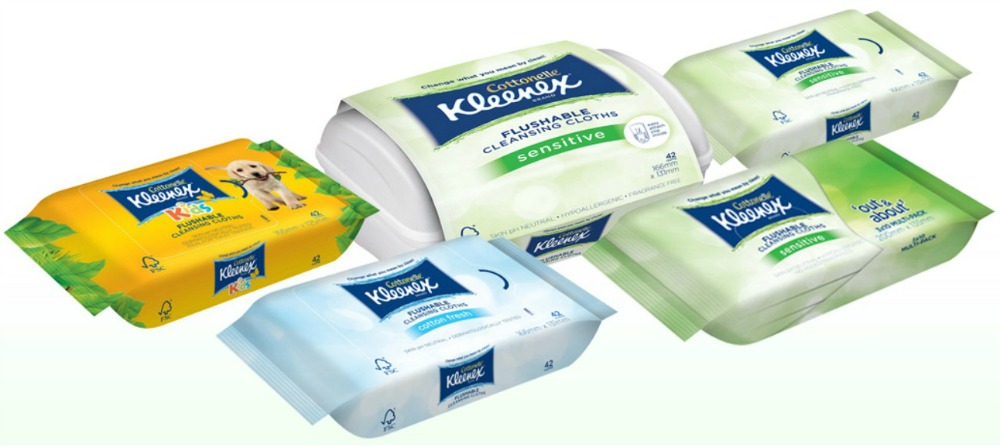Court rules against ACCC claims Kleenex flushable wipes are blocking drains

Australia’s consumer watchdog has lost its case against Kimberly-Clark Australia after the Federal Court dismissed claims the global company misled consumers by saying its wipes were suitable for flushing.
The Australian Competition and Consumer Commission (ACCC) launched proceedings against Kimberly-Clark in December 2016, claiming the company made false or misleading representations by labelling its Kleenex Cottonelle Flushable Cleansing Cloths as flushable.
The ACCC argued that by labelling the range, which has since been discontinued, as flushable, Kimberly-Clark had misled consumers about the suitability of its wipes to be flushed down the toilet, adding the wipes did not disintegrate like toilet paper when flushed and contributed to drain blockages.
“We argued that Kimberly-Clark’s wipes did not break apart quickly once flushed and therefore should not have been considered ‘flushable’,” ACCC Chair Rod Sims said in a statement.
The court, however, said there was no sufficient evidence to show that Kimberly-Clark’s Kleenex Cottonelle wipes had caused blockages in sewerage systems across the country.

“The ACCC took this action because it was concerned that consumers were being misled about the very nature of the product they were buying,” Sims said.
“We also took this case because we are aware of increasing problems reported by Australian water authorities as a result of non-suitable products being flushed down the toilet and contributing to blockages and other operational issues.
“The ACCC is carefully considering the court’s decision.”
While the court found that Kimberly-Clark’s claims were not false or misleading, it did find the company made a false representation when it claimed its wipes were made in Australia, in breach of the Australian Consumer Law. In fact, the wipes were made in Germany, South Korea and the UK.
“Kimberly-Clark misled consumers into thinking they were purchasing an Australian product when this was not the case,” Sims added. “Business must not mislead consumers about where their products are made, or they risk facing court penalties.”
Read more: Bread and ‘dripping’ banished? Fatbergs wreaking havoc across Australia
Flushable wipes have made headlines around the world in recent years over concerns they are blocking drains and wreaking hovoc on sewage systems. Large clusters of the wipes, dubbed fatbergs, have been pulled from pipes across Britain, Australia and the US sparking calls for stricter regulation around claims the products are fine to flush down the toilet.
It’s not just wipes causing issues though. Last year, Queensland Urban Utilities was forced to ask Brisbane residents to refrain from dumping their unwanted fats and oils down the drain after a spike in fatbergs was detected in the city.
While most Baby Boomers, particularly those who grew up in Australia or the UK, are aware that cooking oil should never be poured down the toilet or sink, it seems many Australian have become lax and are tipping their oily food waste straight down the drain rather than placing it in the bin.








 Proudly Australian owned and operated
Proudly Australian owned and operated